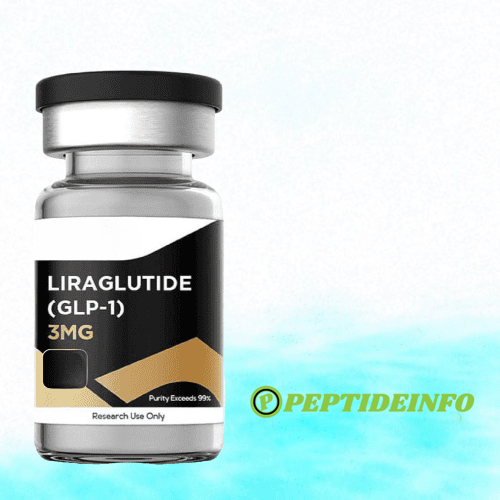In this section, our research team covers some of the potential benefits and uses of liraglutide peptide therapy.
Liraglutide for Weight Loss
Although liraglutide has been FDA-approved for managing overweight and obesity since 2014, researchers continue to explore its safety and effectiveness in weight loss interventions [11].
As of publication, one of the latest meta-analyses on the topic was published in 2022 and pooled data from all available randomized control trials (RCTs) on liraglutide on obesity regardless of duration [13].
The researchers analyzed 14 RCTs to evaluate the safety and efficacy of liraglutide 3.0mg dose in overweight and obese patients above 18 years of age taken for 20-56 weeks.
The scientists reported that, on average, liraglutide leads to an almost 5kg (~11lb) greater weight loss compared to placebo. The peptide also effectively reduced waist circumference and BMI in diabetic and non-diabetic research volunteers.
Further, another 2022 meta-analysis reported that liraglutide significantly reduces visceral and liver fat, in both diabetic and non-diabetic patients [14]. The accumulation of liver fat is the main pathogenic mechanism of NAFLD.
On the other hand, high visceral fat is considered the most dangerous type of excessive adiposity, and visceral obesity is associated with an increased risk of heart disease, type 2 diabetes, and certain cancers [15].
According to the meta-analysis, at least 16 weeks of therapy and a minimum of 1.8mg per day of liraglutide were the decisive factors for reducing visceral fat [14].
Liraglutide for Type 2 Diabetes and Complications
As mentioned earlier, liraglutide is FDA-approved as an effective therapy in individuals with type 2 diabetes (T2D). Researchers should note the systematic review by Ostawal et al. published in Diabetes Therapy (2016), confirming the clinical effectiveness of liraglutide for treating T2D mellitus by summarizing data from 43 randomized trials [9, 16].
The review’s findings indicated that liraglutide treatment significantly decreases glycated hemoglobin (HbA1c) levels, with a reduction of 0.9%-2.2% within six months of treatment initiation [16].
Further, in the majority of studies, liraglutide therapy was reported as generally well-tolerated, with a low incidence of hypoglycemia, and benefits of treatment sustained for a minimum of 12 months. Moreover, the peptide has been linked to a reduced risk of type 2 diabetes complications such as heart disease and stroke [16].
In the LEADER trial (Liraglutide Effect and Action in Diabetes: Evaluation of Cardiovascular Outcome Results), researchers found that liraglutide reduced the risk of cardiovascular events in diabetic patients, including heart attack, stroke, and cardiovascular death, by 13% compared to placebo. Liraglutide also reduced the risk of all-cause mortality by 15% and, most notably, the risk of fatal myocardial infarction by 40% [17].
Liraglutide for PCOS
Polycystic ovary syndrome (PCOS) is a relatively common condition in women who are overweight or obese and have various degrees of insulin resistance, which is considered a pathogenic factor for the disease.
A recent meta-analysis reviewed six controlled trials involving 401 obese women with PCOS who were given liraglutide alone or as an add-on therapy to other medications used for managing the condition, such as metformin.
According to the authors, liraglutide taken as a monotherapy or as an add-on could significantly improve insulin resistance compared to controls. This, in turn, may improve fertility and reduce symptoms.
There was also a greater reduction in waist circumference (-6.28 cm), BMI (-2.53 kg/m2), and weight (-4.33 kg) than in controls when liraglutide was added alongside other medication or taken alone [18].
Another meta-analysis included three trials that compared liraglutide to metformin and four more that compared a combination of liraglutide and metformin to metformin alone as a control.
The researchers reported that liraglutide alone had similar effectiveness to metformin alone for managing PCOS symptoms.
Furthermore, the combination treatment of liraglutide and metformin was more effective than metformin alone in reducing body weight, waist circumference, and several parameters of insulin resistance [19].
Liraglutide for Psoriasis
There is growing evidence that liraglutide may help reduce symptoms of plaque psoriasis, specifically in patients who also suffer from type 2 diabetes.
One of the latest systematic reviews on the topic covered a total of 4 trials and reported significant improvement in the condition, assessed according to a 72-point scale called Psoriasis Area and Severity Index (PASI). The scientists reported that the treatment reduced the average PASI score by one to seven points [20].
Nevertheless, more research is needed to evaluate the effects of liraglutide on this common skin condition.
Liraglutide for Neurodegenerative Diseases
Apart from reducing hunger, activating the GLP-1 receptors in the brain may also have neuroprotective and anti-inflammatory effects on the central nervous system.
For example, one of the most notable trials on the subject is the ELAD trial, which stands for “Evaluating Liraglutide in Alzheimer’s Disease.” This 12-month RCT reported that liraglutide improves cognitive function and MRI volume in the temporal lobe and whole cortex, suggesting a potential benefit in treating Alzheimer’s [21].
Animal experiments also suggest that liraglutide has a neuroprotective effect in murine models of Parkinson’s disease (PD), which is accomplished by activating PGC-1α to regulate mitochondria biogenesis, dynamics, autophagy, and apoptosis in substantia nigra—the region in the brain that gets damaged by PD [22].
Despite the promising results, more research is needed to evaluate the potential benefits of liraglutide in neurodegenerative disease settings.




